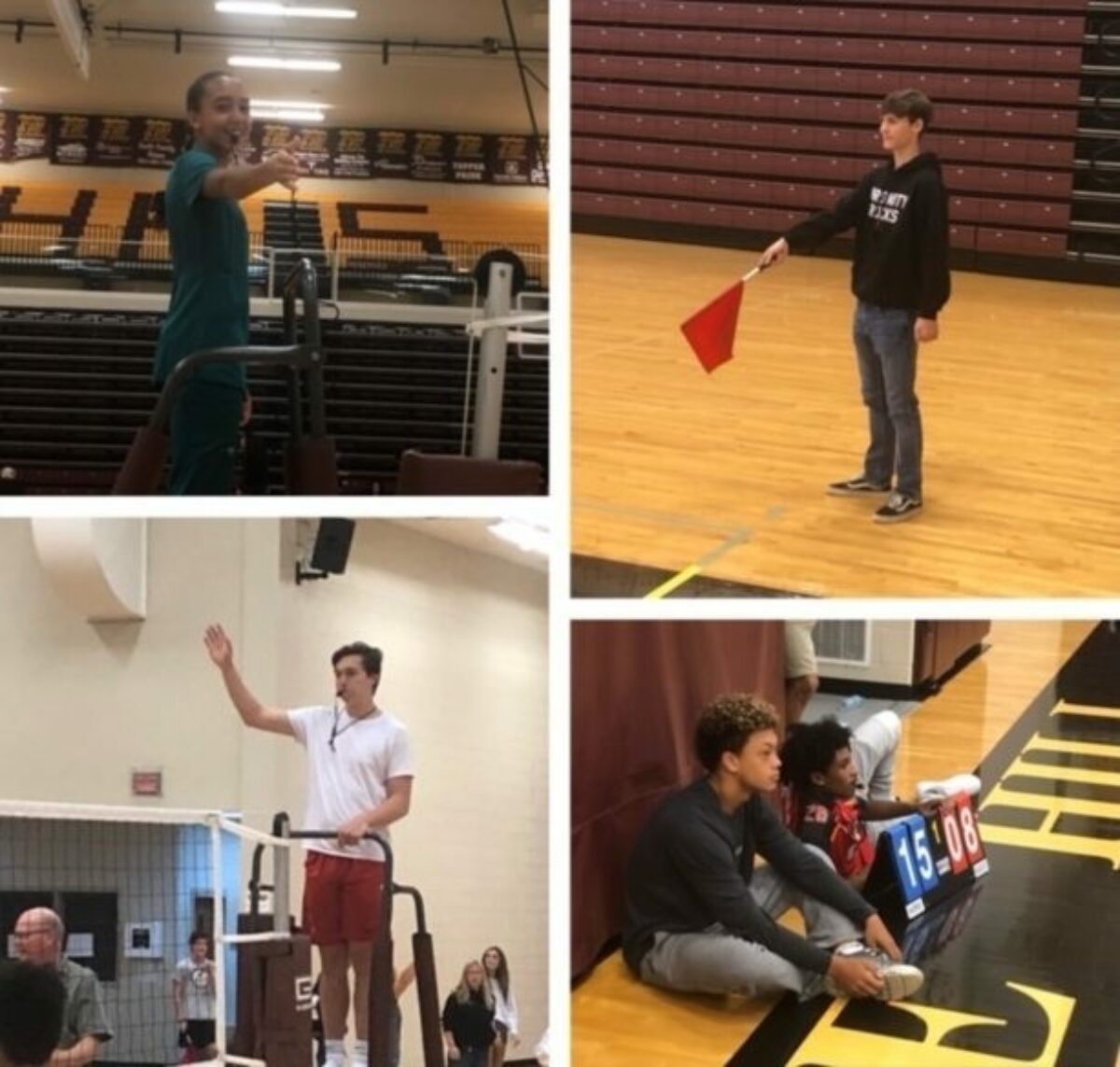The hope was for student interest.
The response was overwhelming.
And the classroom? Well, that’s the playing fields.
When Keith Turner and Scottie Whaley brainstormed in the spring about adding a course at Science Hill High School that would teach officiating of myriad sports, they wondered if it might intrigue enough students to fill up a classroom.
They got so many interested students that not only did Science Hill this school year launch its fledgling new program but it already has pondered a future expansion. It is believed to be the state of Tennessee’s first-of-its-kind class to teach sports officiating in high school.
“Basically, our concept was with the national shortage of officials, and a national shortage on teenage-type jobs, we felt like we could create a niche there and start getting some of these students who could take it as an elective class,” said Turner, athletics director at Science Hill, which boasts one of the largest enrollments in northeast Tennessee. “We are trying to train them and get them ready to pass the officials’ tests in multiple sports. “
“We weren’t really sure how many students would even be interested. We had over 120 students; we only have one class this semester and one next, so we’ll probably just get half of them, but if the interest is still there, we may have to increase the number of classes next year.”
Added Whaley, the Lady ’Toppers basketball coach, “We were like, ‘Gosh that’s a lot of kids.’ But it’s been good. The class I have is very diverse. We have soccer, basketball, football, cross country, wrestling and softball athletes in it. We’ve got a lot of different sports represented. We’ve got 28 students this semester and we’ll probably have 28 to 30 next semester. If it keeps growing, we'll hopefully add another class.”
Students are receiving class instruction on a variety of sports, with a course curriculum approved earlier this spring after Science Hill officials submitted the proper documents to Tennessee’s Department of Education. Alabama, they said, was the first state to adopt an officiating class as an approved elective course; some other Midwest states have since followed the move.
“We talked in the spring and asked about officiating class and said we thought it would be a good idea with the shortage of officials, nationwide,” Whaley said of Science Hill leaders’ discussions with the state. “And there would be some hands-on experience to be an official or work with the Parks and Recreation Department. We kind of looked at the Alabama model and that’s where we kind of took it from. We hope it keeps growing.”
Turner said the state immediately found the thorough program as an enticing new educational element.
“We sent it in last spring, but the lady asked me to call her. She was a former track athlete and she asked me why we didn’t have track officiating in our curriculum, and I said, ‘It might be something we expand,’” Turner shared. “We may do certain sports the first semester and certain ones in the spring. The State Department was very receptive to it. I think it will spread to other schools.”
Students already are getting practical application; their classroom during a recent week was a volleyball court.
“We actually officiated some volleyball in P.E. and had one student who did the lines for a J.V. and freshman volleyball game,” Whaley said. “The response has been great.”
The professional instruction is going to reach an even greater level in the coming days and weeks. Science Hill is tapping into the knowledge and experience of northeast Tennessee’s bank of officials, as well as relying on its close-knit relationship with Johnson City officials.
“My thoughts are very positive about it. I’ve been involved in officiating for years and I think I’ve talked with people at Science Hill and David Crockett [which could add a similar course], and most of the athletes that you have are going to leave high school and never play sports again, probably,” said veteran official Ron McEwen, pastor at First Church of God in Johnson City and current coordinator of middle school officials in the area. “We are in desperate need of officials and an officials' class would be something really beneficial to entice some younger people to get involved. Myself and Lynn Griffith, a retired teacher and official, we don’t mind coming and helping an officiating class and we don’t want to be paid anything.
“I think it’s going to be a good thing, getting students involved in middle school officiating to learn and make a little money and begin to see if they would like to do it more down the road. The kids get class credit as well as learn about officiating. If our association adds even three percent of people who take class, it would be well worth it.”
Turner already is seeing a difference in the crowds at his school’s various sporting events.
“Coach Whaley’s done a lot of work, worked with the TSSAA and the NFHS (National Federation of State High School Associations), secured online rulebooks for all kids to be able to use to study,” Turner said. “It’s a work in progress, but it’s off to a good start. They’re getting classroom work, practical work, and I’ve seen students coming to our games to specifically watch.
“Kids are taking it very seriously. Coach Whaley’s working with some other P.E. teachers, they’ve done basketball already and are in volleyball right now and then they’ll probably do football. The second nine weeks will probably be baseball, softball and maybe soccer. Our students could be potentially exposed to officiating six different sports in a semester. We will have to gauge that.”
If the initial response is any reflection, then Science Hill’s going to need a powerful gauge.

Science Hill Sports Officiating Class


